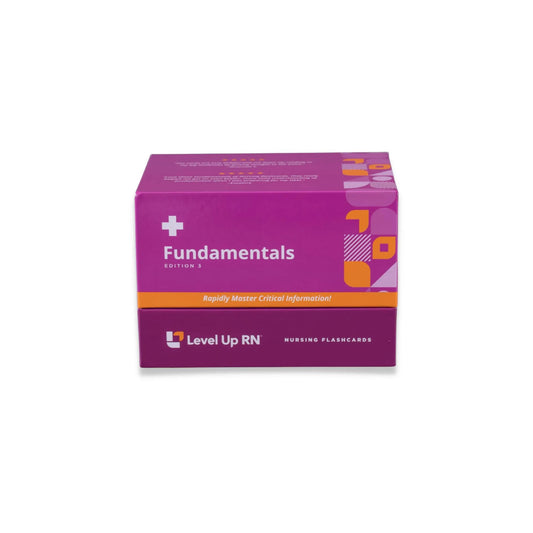Fundamentals - Community Health, part 1: Terminology and Roles
Community health terminology including the differences between community-oriented nursing and community-based nursing. They then describe different nurse roles within the field of community health.
Full Transcript: Fundamentals - Community Health, part 1: Terminology and Roles
Full Transcript: Fundamentals - Community Health, part 1: Terminology and Roles
Hi, I'm Ellis with Level Up RN. In these videos, I'll be covering community health. Our community health flashcards can be found in our fundamentals of nursing flashcard deck. So if you have this deck, grab it, and you can follow along with me. If you don't have the deck, head on over to leveluprn.com. After we cover the content in this video, there will be a couple of questions to check your knowledge. Before we can begin too much of a conversation on community health, it's important that we first establish some terminology. And the first word, of course, being community. Community is defined as a group of people that are connected in some way, and this might be social, personal, or literally geographical links. For example, people that live in the same neighborhood. An aggregate is a subgroup or subpopulation of people who share the same concerns or maybe even the same characteristics, so it's simply a community within a community. So if it is a neighborhood of people, then perhaps there could be an aggregate of LGBTQ+ people. Community-oriented nursing has a focus on health promotion and disease prevention within a community or a population. And that's going to include things like screenings, immunization clinics. It's going to include outreach programs, education, and so public health nursing is a type of community-oriented nursing. Community-based nursing means that the nurse is in the community providing the care. So it's focusing on illness care within the community itself, so taking care of patients and families in a capacity like home health nursing or perhaps hospice nursing if it's in a home setting.
There are many roles a nurse can take if they're interested in community health. The most common probably being home health. Home health is simply when the nurse takes care of a patient within their own residence, so going out into the community and caring for people in their homes. And this is going to include assessing patients, providing treatments like wound care, medications. It's going to include education for the patient, for their families, for their caregivers. It's also going to include a lot of communication because the nurse is going to need to be able to relay things to practitioners and other care team members like the pharmacist or CNAs or anybody else that's going to be needed to provide care to this patient and their family. Hospice nurses provide palliative care and emotional support to patients during their end of life and through the process of death. Occupational health nurses provide screenings, surveillance, and education to help prevent workplace injury and accidents. Faith-based nurses or parish nurses provide health education and promotion within a faith community or perhaps a congregation, and part of their holistic care is going to include a focus on the spiritual health of that community. School-based nurses provide preventative care, including screenings for vision and hearing. They also would provide care in acute or emergence situations, and they can help with the coordination of care for students that have chronic illnesses.
What is the definition of an aggregate? An aggregate is a subgroup or subpopulation of people within a larger community that share characteristics or concerns. What's the difference between community-oriented nursing and community-based nursing? Community-oriented nursing focuses on health promotion and disease prevention, while community-based nursing is when a nurse provides illness care within the community itself. Thanks for studying with me. I hope you enjoyed the video. And if you want more content, make sure you like and subscribe.


